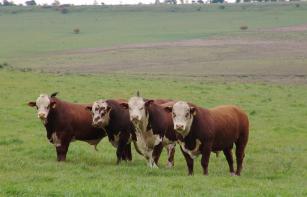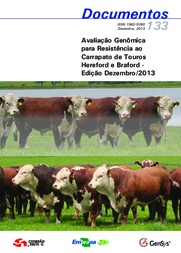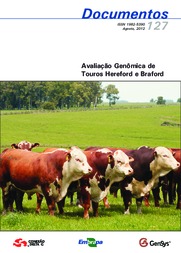Genomic selection for resistance to cattle tick - Rhipicephalus (Boophilus) microplus - in the Hereford and Braford breeds
Genomic selection for resistance to cattle tick - Rhipicephalus (Boophilus) microplus - in the Hereford and Braford breeds

Photo: BARCELLOS, Kéke
Brazilian cattle farming has been constantly growing and it currently has extreme importance for agribusiness and the Brazilian economy. Brazil has the world's largest commercial cattle herd, with approximately 210 million head, and is the top beef exporter. To remain competitive in the foreign market and find better-paying niches, Brazil needs to improve the quality and security of the beef while maintaining competitive prices. Among the main causes of cattle production losses, there is the tick Rhipicephalus (Boophilus) microplus, a hematophagous mite distributed in the entire domestic territory, which causes reduced animal performance, depreciation of the leather, high expenses with inputs, and transmission of other etiological agents. Estimates suggest that these losses in Brazil annually near two billion dollars. This parasite is also the main limitation for the expansion of farming with purebreeds and crossbreeds with breed of British origin in the vast tropical region of the country. The existence of genetic variability for resistance to ticks demonstrates that there is potential for the improvement of this trait in bovines. With this, it is possible to prevent the frequent use of acaricides and its consequent food security problems due to the chemical residues in the meat, the parasite developing resistance to their active principles, and the high costs of the treatments.
Ecosystem: Extreme South, Cerrados Region
Status: Completed Start date: Thu Apr 01 00:00:00 GMT-03:00 2010 Conclusion date: Mon Mar 31 00:00:00 GMT-03:00 2014
Head Unit: Embrapa Southern Livestock
Project leader: Fernando Flores Cardoso
Contact: fernando.cardoso@embrapa.br
Keywords: Bovinos, Braford, Carrapato, Hereford, Marcadores moleculares, Seleção genômica


